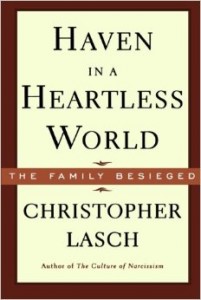
Networking is not reserved to the the internet. If there is one lesson to take away from the world’s most cited academic book, Latour’s We Have Never Been Modern, it’s that the world if full of strange connections. You’re never far away from either the greatest glories and the worst sins of your neighbors, and vice-versa.
I recently ran across a paper that argues, but only on the margins, as if it were ashamed of the discovery, that classical conservatism and post-colonialism are bedfellows. For example, they share a bed of concern for traditions, local culture, and thinking within context. How weird does that sound at first? But then doesn’t it make sense once you let it sink in?
That’s a kind of ideological feel-good story, but let’s turn to something more nefarious for the rest of this post. Our entryway into it is the following passage the introduction J.G. Ballard wrote to his novel Crash:

We live in a world ruled by fictions of every kind — mass merchandising, advertising, politics conducted as a branch of advertising, the instant translation of science and technology into popular imagery, the increasing blurring and intermingling of identities within the realm of consumer goods, the preempting of any free or original imaginative response to experience by the television screen. We live inside an enormous novel. For the writer in particular it is less and less necessary for him to invent the fictional content of his novel. The fiction is already there. The writer’s task is to invent the reality.
In Ballard’s novel (faithfully adapted by David Cronenberg, the master of fethishist-realist-cinema) the world of advertising’s constant titillation of desire melds with sex and violence. The novel is built around a group of perverts who get off on orchestrating car crashes. Trust me, it’s really convincing in the execution (pardon the pun), probably because, as Rene Girard uncomfortably notes at the start of Violence and the Sacred, human beings give off identical physiological reactions to sex and violence; in the end this solves the mystery of why some of us move so seamlessly between one and the other.
This relationship between sex and violence (and the economy) is reflected in the Chris Hedges summary of his interview with feminist Gail Dines, author of Pornland: How Porn Has Hijacked Our Sexuality.
The Hedges piece really delivers on its apocalyptic title “Pornography Is What the End of the World Looks Like.” Here is what he says about current academic trends and the generally pleasantly tickled bourgeois reactions to 50 Shades:

A new wave of feminists, who have betrayed the iconic work of radicals such as Andrea Dworkin, defends porn as a form of sexual liberation and self-empowerment. These “feminists,” grounded in Michel Foucault [a graduate of Jesuit schools and an adept of spiritual exercises] and Judith Butler [nominalist deity to the core], are stunted products of neoliberalism and postmodernism. Feminism, for them, is no longer about the liberation of women who are oppressed; it is defined by a handful of women who are successful, powerful and wealthy—or, as in the case of “Fifty Shades of Grey,” able to snag a rich and powerful man. A woman wrote the “Fifty Shades” book, as well as the screenplay. A woman directed the film. A woman studio head bought the movie. This collusion by women is part of the internalization of oppression and sexual violence that have their roots in porn. Dworkin understood. She wrote that “the new pornography is a vast graveyard where the Left has gone to die. The Left cannot have its whores and its politics too.”
But let’s not dwell too much on the man (although I think Foucault is more redeemable than he lets on) and let’s see instead what Dines had to say about feminism and capitalism:
“In post-Second-World-War America you have the emergence of a middle class with a disposable income,” she said. “The only trouble is that this group was born to parents who had been through a depression and a war. They did not know how to spend. They only knew how to save. What [the capitalists] needed to jump-start the economy was to get people to spend money on stuff they did not need. For women they brought in the television soaps. One of the reasons the ranch house was developed was because [families] only had one television. The television was in the living room and women spent a lot of time in the kitchen. You had to devise a house where she could watch television from the kitchen. She was being taught.”
“But who was teaching the men how to spend money?” she went on. “It was Playboy [Magazine]. This was the brilliance of Hugh Hefner. He understood that you don’t just commodify sexuality, you sexualize commodities. The promise that Playboy held out was not the girls or the women, it was that if you buy at this level, if you consume at the level Playboy tells you to, then you will get the prize, which is the women. The step that was crucial to getting the prize was the consumption of commodities. He wrapped porn, which sexualized and commoditized women’s bodies, in an upper-middle-class blanket. He gave it a veneer of respectability.”
Yet, being a devotee of Augustine’s divided will, the subject of Lent if you will, I think the reality is even more perverse than capitalism taking over women’s bodies for physical and commercial abuse. The fault goes even deeper and it’s not so happy.
Here I would like to draw your attention to the riveting review, “Stand by Your Man,” of Tete a Tete written by Louis Menand, better known for his work on the history of philosophy in the United States.
He characterizes Tete a Tete as report on the fallout from Simone de Beauvoir’s Letters to Sartre. And the view isn’t beautiful, it’s toxic, abusive:

If The Second Sex can’t be squared with the life, we are reduced to the final, depressing theory that the pact was just the traditional sexist arrangement—in which the man sleeps around and the woman nobly “accepts” the situation—on philosophical stilts. Sartre was the classic womanizer, and Beauvoir was the classic enabler. In the beginning, the bisexuality was her way of showing the proper spirit. “I’ve a very keen taste for her body”: who is speaking that sentence? The woman who wants it to be heard, or the man who wants to hear it? Later on, she had other men, but finding a man willing to enter a sexual intimacy without strings is not the most difficult thing in the world. (Algren turned out not to be one.) Beauvoir was formidable, but she was not made of ice. Though her affairs, for the most part, were love affairs, it is plain from almost every page she wrote that she would have given them all up if she could have had Sartre for herself alone.
This is truly pathetic. It’s hard not to feel sorry for de Beauvoir. Yet, Menand notes, de Beauvoir’s most important book seems to have enabled abusive relations in her very conflicted execution of its plan for women’s liberation:
The book’s final chapter, “The Independent Woman,” arguing that only economic self-sufficiency can release women from subordination, was one of the inspirational texts for the women’s movement of the nineteen-sixties and seventies. But you can no longer read it without thinking of Olga and Wanda, Arlette and Michelle—the women Sartre supported, who never had independent careers, and who knew that they were allowed access to Sartre only as long as they were “pretty” and never bored him by talking “in the realm of ideas.” A little intellectual pretension, the flattering kind shown by a young admirer, was titillating, of course. It was necessary to get the attention of the great man, who was not disappointed, because he was not surprised, by its limitations.
That Sartre’s relations held back women from being put into economic circulation as labor-commodities actually only gets at a part of the flaw of The Second Sex. Christopher Lasch, a disappointed leftist if there ever was one, in Haven in a Heartless World (I hate the title) gets even further down into the heart of the matter.
What if the problem wasn’t so much Sartre but that last chapter of The Second Sex?

The problem of women’s work and women’s equality needs to be examined from a perspective more radical than any that has emerged from the feminist movement. It has to be seen as a specific case of the general rule that work takes precedence over the family… Those who endorse the goals of the women’s movement need to look beyond the existing organization of work, and beyond feminism, to a new set of social arrangements in which work becomes itself another aspect of nurture, transcends its present character of individual self-aggrandizement, and comes to serve the needs, not merely of the living, but of generations yet to come.
In other words, what if the Republicans and Libertarians (heck, Democrats too), with their unquestioning love for the unfettered free market, are in bed not only with the present batch of feminists whom Hedges and Dines excoriate, but also the matriarch of the movement?
Is there anything we won’t do for money these days? Is there anything we can do to escape the economic trap? Families are falling apart because the economy requires such sacrifices.
My family is about to find out as we head into a situation where we’ll be a hair’s breadth away from homelessness once again. Our choices right now hover somewhere between unemployment and constant frustration with not being able to provide for the kids, or underemployment and totally abandoning the kids to the care of strangers.
I ask again: where is the Church in all this? The generations yet to come will judge it.
Perhaps de Beauvoir wasn’t the only one sending mixed messages?
What would a feminism that takes our dependency seriously, rather than allowing it to be exploited, look like? How would a Church that does the same look?
How Augustinian, how downright pornographic, is a situation where you can even conceive of asking such perverse questions?
Is it as abusive as this song? Note Johnny Cash’s (drunken?) gaze at the start.
By the way, did you know that Sartre wasn’t faithful to atheism? He cheated it late in life.
You might also be interested in the following:
The Consequences of God’s Maternal Thinking for Theology,
What We Want is a Spirituality of Wiping Bottoms and Breastfeeding!,












